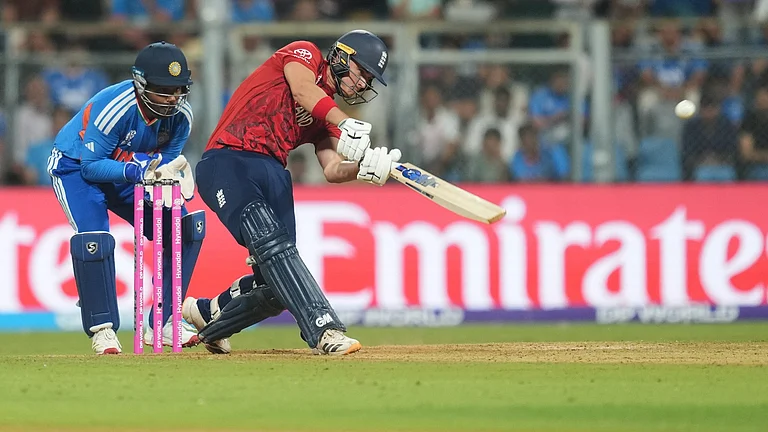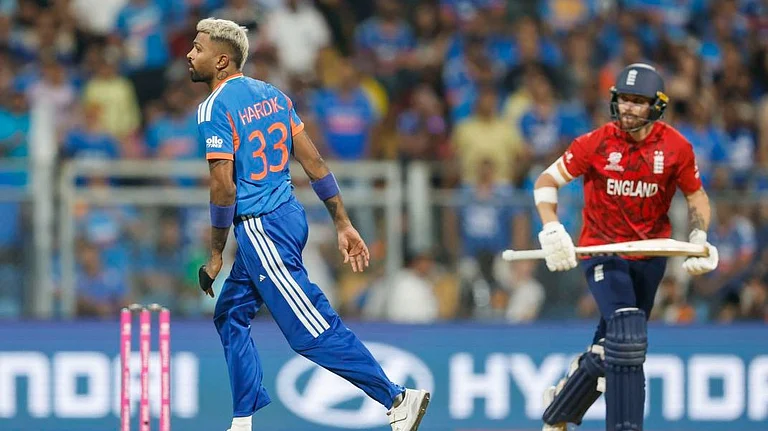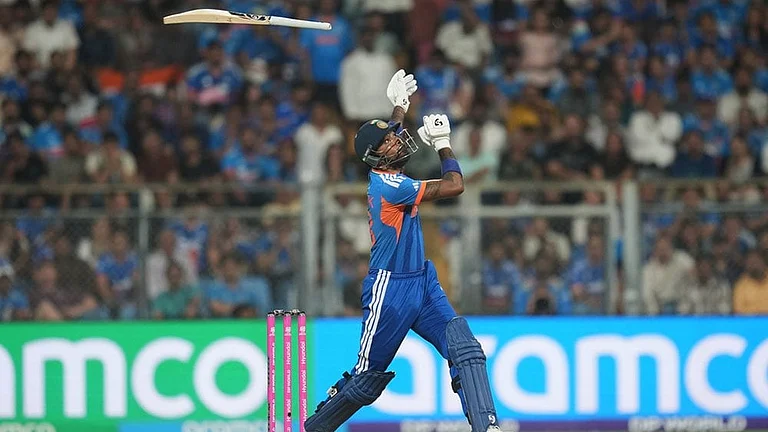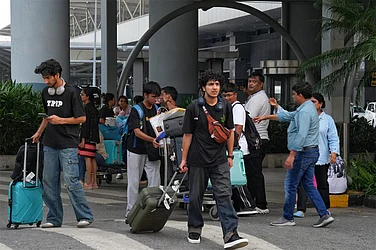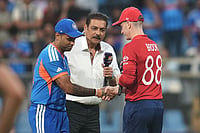Leadership is the art of influencing and directing human behaviour to accomplish the task in a manner as desired by the leader. Leadership is a dynamic integrated concept which calls for interaction between leader and men. To gain trust of troops under command, there has to be continuous interaction between commanders and men. Trust and confidence is also vital for building morale and bridging the gap between commanders and men.
The importance of morale in armed forces is best explained by Napoleon. He said, “An Army’s effectiveness depends on its size, training, experience, and morale and morale is worth more than any of the other factors combined.”
As per a report in The Indian Express on February 4 2023, titled “Suicides, fratricides in CAPFs: Task force Report points to discrimination, abuse, trauma and bullying”, a task force of the Ministry of Home Affairs (MHA) found that three major factors lead to suicides: service conditions, working conditions, and personal/individual issues.
Discrimination among sub-groups, trauma of being abused, bullying at workplace, fear of initiation of disciplinary or legal action, lack of communication between company commander and jawans are some of the reasons cited by the task force formed to look into suicide and fratricide cases in the Central Armed Police Forces (CAPFs).
Additionally, unreasonable denial of leave, forcing men to cancel reservation causing monetary loss and mental agony, arbitrary intra-battalion transfers, forcing men to work as domestic servants, and compelling staff to fulfil unreasonable demands are reasons that put men under tremendous stress. All these factors enumerated by MHA task force affect morale and motivation affecting operational effectiveness.
CAPFs need to shed perfunctory attitude and pay special attention towards the important aspect of morale and motivation, an indicator of professional health of men and organisation. It is a basic prerequisite to measure and gauge the satisfaction and efficiency index of men in CAPFs — the uniformed arm of MHA. It also signifies high standard of discipline and professionalism. Morale and motivation carry special importance for internal security and border-guarding CAPFs since they perform multifarious duties in addition to their primary roles.
In today’s modern world of communication, social media plays an important role in creating opinion and perception. Social media is also a platform for people at large to gauge the morale and motivation level of any organisation through content which floats on social media. It gives an insight into the prevailing state of affairs and helps an independent analyst to gauge the health of the organisation.
There is no denying the fact that the chasm between commanders and men is increasing day in and day out both at execution and at conceptual level in CAPFs, hence urgent need to gauge and restore trust and confidence between commanders and men. This gap is creating trust deficit and sets in hesitancy in men to approach commanders for grievance-redressal through proper chain of command. Men resort to unauthorised means and violate chain of command for grievance-redressal. The failure to get grievances redressed leads to dissatisfaction and frustration among men. The dissatisfaction and frustration are the primary cause of high attrition rate in CAPFs and a major trigger for suicides, fratricides and indiscipline, which are further compounded by harsh, difficult, and working conditions.
A social media post, which may seem irrelevant, conveys a lot about working environment as well as relations between men and officers, and needs to be taken seriously. In lieu of the same, corrective measures must be initiated to remove the causes of dissatisfaction and frustration. The negative perceptions aired through social media need to transition towards positivism through constructive measures such as hard training, regimentation, continued interaction, and catering to physical and psychological needs of men. Similarly, men also need to understand the constraints that field commanders face and be appreciative of true and real commanders who fight shoulder to shoulder with men and do everything within their power and capability to keep the morale of men high.
What is morale and motivation? Morale is a state of mind. It is premised on the socio-cultural context, his fellow soldiers, his leaders, military life in general and certain other incidental factors. It is closely related to satisfying a man’s basic needs to a dignified existence. Primarily positioned on the administrative functioning of a battalion that caters to the fulfilment of a jawan’s basic needs, creating a conducive environment that boosts his spirits keeping his/her morale high. High morale reinforces a positive state of mind, providing a sense of security to the CAPF personnel amidst the arduous job requirements.
The prime reason for low/poor morale is due to a lack of attention to the requirements of troops and the deep chasm within the hierarchal structure. The lack of an appropriate grievance redressal mechanism leads to organisational disharmony and negatively influences professionalism.
Morale can be evaluated through consistent monitoring of men individually as well as collectively within a group. In a poorly administered unit, rate of voluntary retirement requests is generally high in comparison to a better-administered unit. Morale of an individual and group is measured through several variables. It is only by bridging gap between commanders and men that these variables are positively addressed. Inability and unwillingness to look into these variables creates a trust deficit in command and affects morale negatively.
Supervisory officers at battalion-level in particular and formation-level in general need to pay special attention on various administrative facets of morale. These facets can be gauged through a regular analysis of overstayed and desertion cases, their causal factors, and measures to reduce them. Increase in disciplinary cases of minor and major nature also need constant monitoring. Cases of insubordination, mutinous conduct, and poor response to orders need special attention.
Now let us have a look into the variables that need to be addressed, which also form the building blocks of a robust force. CAPFs in the past years have witnessed an enormous increase in court cases, which is due to the ineffectiveness of current grievance-redressal mechanism, creating an atmosphere of distrust in the organisational and administrative machinery of MHA. Immediate action needs to be taken to address the increase in court cases and encourage alternative methods of dispute resolution such as conciliation, mediation, use of good offices etc.
Additionally, effective and arduous professional unit training not only makes an individual professional, it also imbibes discipline in the individual as well as the troops, which is reflected through his personal appearance, standard of uniform, and his swiftness and smartness in following force courtesies. Increase in sick report cases and malingerers are an indication of poor health and hygiene. A dignified living space for the troops as well as their families must be the prime area of attention. In many units, there are cases of excessive quarrelling amongst men owing to groupism and favouritism based upon region, religion, caste, and creed. Such incidents sometimes lead to suicides and even fratricides and need special attention. Additionally, an increase in requests for postings is also reflective of low morale, which needs to be addressed.
There is no denying the fact that in a CAPF battalion with a strength of about 1200 men, the grievance of every man is unique. A CAPF commandant’s task is onerous wherein he carries on his shoulders, the burden of resolution of all grievances of men that must align with his expectations. If every individual has one grievance per fortnight, it comes to 2,400 grievances per month and number multiplies in equal proportion. The commandant needs a dedicated team of officers and subordinates to look after the troops to keep the morale of men high and maintain professional efficiency of his team. Unfortunately, the operational and administrative commitments of battalion command are so unmanageable that morale factor becomes irrelevant and is relegated to background creating trust and confidence deficit in troops under command.
What is the solution to this unmanageable cauldron? The solution is to make the command sensitive to needs of men, to analyse the variables that contribute to building morale, and based upon them prepare a plan to bridge the gap between command and men. The variables that build up morale are regimentation, camaraderie, spirit-de corps, leadership, staff work and high standard of discipline. Continuous professional training, maintenance of force/battalion ethos and traditions as well as a positive propaganda of achievements of battalion and no ill/mal treatment of men also help in building up morale and motivation. Catering to the basic needs of men through implementation of these essentials will enhance trust between command and men and certainly bridge the gap and negative perceptions of command.
The buzzword to build up morale, bridge gap between command and men is accessibility and interaction. Command may not be able to individually cater to resolve every grievance due to several constraints, but it can certainly put men at ease, make them feel wanted, listen, give them a patient ear. Embracing these measures will lead to overcoming half the battle against distrust and dissatisfaction. Commanders need to appreciate that there is a need to cement regimentation, build upon regimental ethos, traditions and put men through hard training.
Real welfare is to prepare men to face service hardships with confidence. CAPFs need to strengthen the existing grievance-redressal mechanism by removing anomalies entrenched in the system. The same can be addressed through timely permission to interviews requested through formal channels and institutionalisation of informal interactions. Meet men in the field at odd hours both during day and night. Interact with them during observation post duties, kisan guard, fence gate duties, patrolling and static guard duties. It gives them confidence and ensures highest level of alertness.
Commanders should be impartial, fair, and honest in their conduct to earn respect of Jawans. Ensure zero tolerance for indiscipline, corruption, moral turpitude, and conduct unbecoming of a soldier. Make regimentation the hallmark of organisational ethos, where commanders and men live and die together as they know each other, understand each other, and work for dignity of unit, organisation and nation. Slow and gradual tinkering with regimental fabric has created a void and gap between commanders and men. It is detrimental to national security. Breaking regimental fabric breaks homogeneity of battalion develops non-familiarity between commanders and troops and obliterates feeling of oneness and pride for unit for which a man is motivated to even sacrifice life for izzat of unit. It is the asymmetry between men and command which is leading to indiscipline, violations of chain of command, increasing court cases, suicides and fratricides.
CAPFs need to come out of this cauldron by ensuring a mechanism of time-bound redressal of grievances and meeting the basic needs of troops both physical and psychological. Unless immediate action is taken, the chasm will keep on increasing, posing problems of human resource management which will effect operational and administrative efficiency and ultimately negatively impact national security.
(Captain RC Sharma is a former Commandant of Border Security Force. Views expressed are personal.)



